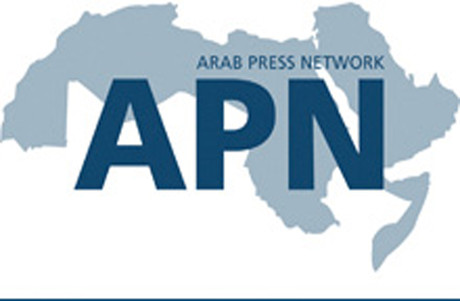On 10 June 2012, three ultra-conservative Islamists (reportedly two men and a woman), who were accompanied by a bailiff and a lawyer, toured the Palais El-Abdellia, an art gallery in Tunis, taking part in the Printemps des Arts modern contemporary art fair. The group demanded that the organisers take down two artworks which they claimed were offensive to Islam.
When their request was denied, the Islamists returned later that night with a large number of supporters and broke into the exhibition from the rear walls, burned the painting of Faten Gaddass, and tore to pieces two linen artworks, one by Mohamed Ben Slama, and the second by a French artist.
On 12 June, the Tunisian Ministry of Culture decided to temporarily close the gallery, after violent reactions in several Tunisian cities, including the capital Tunis. Ennahda ruling party claimed that some of the artworks were provocative and that they violated the "principles of Islam and the holy beliefs of Tunisian people."
Furthermore, the Tunisian Minister of Culture, Mehdi Mabrouk, declared that some of the artworks exhibited at Printemps des Arts do in fact violate Islamic holy symbols, which the artists deny. He has also said that some of these artworks are now under investigation. After acknowledging the provocative role of art, on the morning of 14 June, Mabrouk told Radio Shems FM that six works deemed to be "provocative" had been confiscated.
At a press conference held on 12 June, the Minister announced that the government would likely present a bill to the National Constituent Assembly which would allow criminal charges to be brought against anyone who offends "the sacred." Blasphemy laws are a clear violation of freedom of expression and would present a serious setback to human rights in Tunisia, say IFEX-TMG members.
Previously, on 27 May, Salafist groups attacked the playwright Rajab Al-Maqary in El Kef city. He subsequently suffered serious injuries after being beaten severely on his head and chest. He is still receiving treatment in a Tunis hospital.
IFEX-TMG strongly condemns the increasing use of violence against artists and writers by ultra-conservative groups. IFEX-TMG is particularly concerned about the closure of the exhibition in the Printemps des Arts gallery by the Ministry of Culture, rather than the guaranteeing of a safe environment in which artists can work freely, without threats or censorship.
IFEX-TMG members are additionally concerned about the ongoing detention ofTunisian blogger Jabeur Ben Abdallah Majri, who was sentenced to seven and a half years' imprisonment for publishing writings alleged to be offensive to Islam. Mejri's appeal was held on 24 May and was adjourned. According to his lawyer, the new date has not been set yet. IFEX- TMG calls for his immediate release.
"It is disturbing that those entrusted to promote and defend freedom of expression in Tunisia would side with the dictates of radical groups that resort to violence and destruction to impose their views. The IFEX-TMG calls on the government to take robust steps to protect the right to free expression, so that citizens can enjoy this fundamental right without fear of retribution," says Virginie Jouan, Chair of the IFEX-TMG.
UPDATE: During an appeals hearing on 25 June 2012, the court upheld the seven-year prison sentence of Jabeur Ben Abdallah Majri.
For more information:
IFEX Tunisia Monitoring Group
Virginie Jouan, Chair
on behalf of the World Association of Newspapers and News Publishers (WAN-IFRA)
jouanvirginie@gmail.comhttp://www.wan-ifra.org/sites/all/modules/contrib/extlink/mailto.png); background-position: 100% 50%; background-repeat: no-repeat no-repeat;">
http://www.facebook.com/IFEXTMGhttp://www.wan-ifra.org/sites/all/modules/contrib/extlink/extlink.png); background-position: 100% 50%; background-repeat: no-repeat no-repeat;">
http://ifex.org/tunisia/tmg/http://www.wan-ifra.org/sites/all/modules/contrib/extlink/extlink.png); background-position: 100% 50%; background-repeat: no-repeat no-repeat;">
@IFEXTMG





